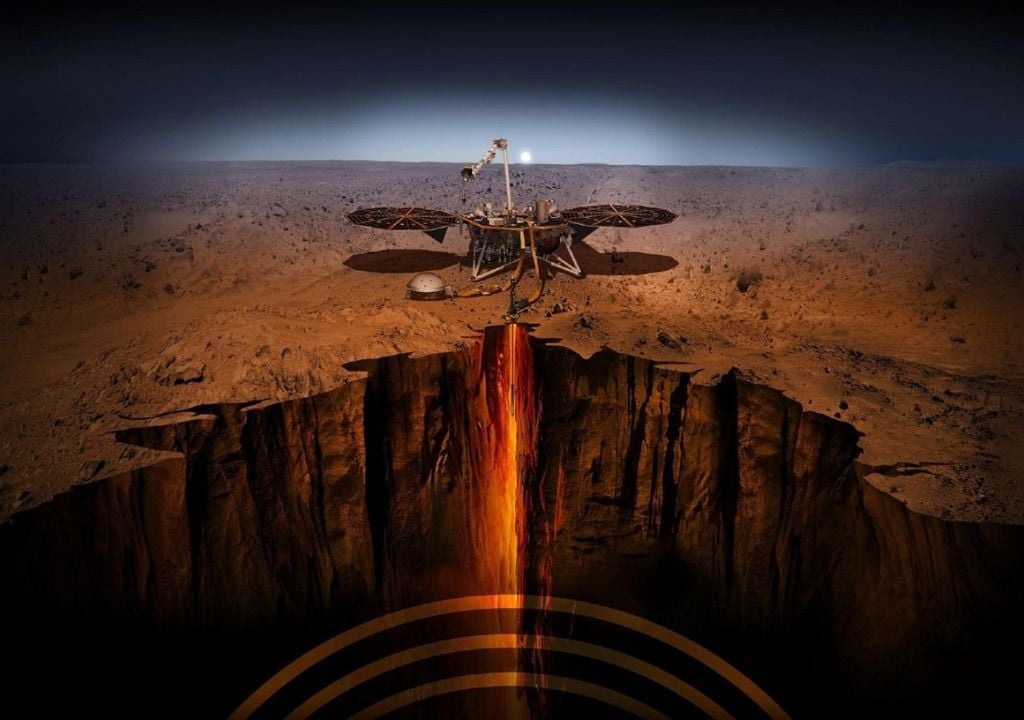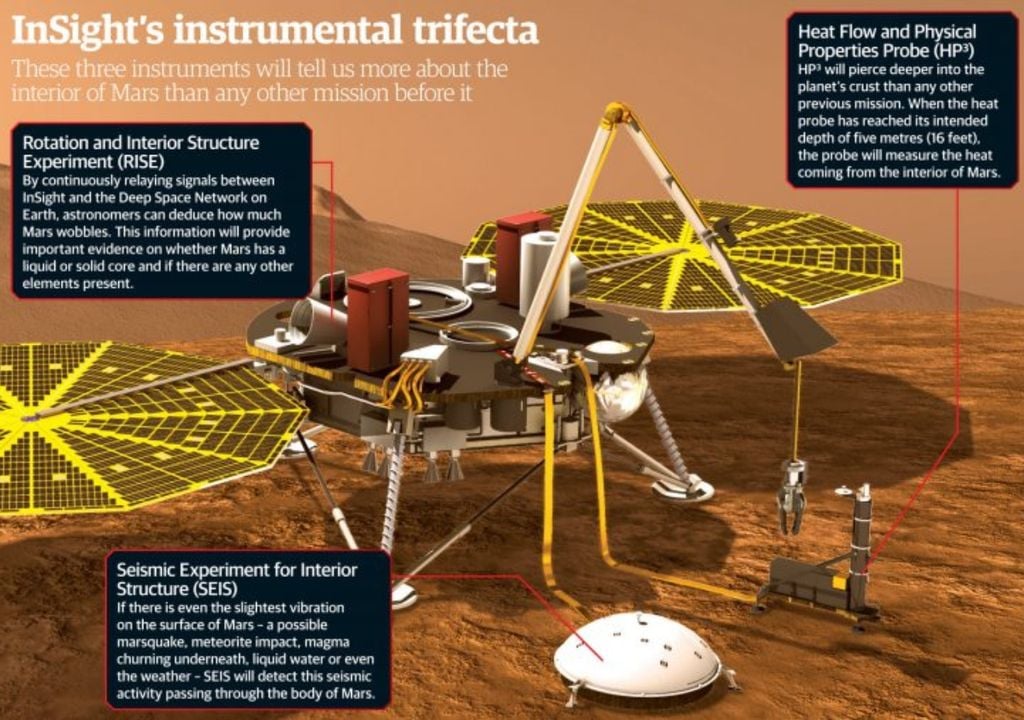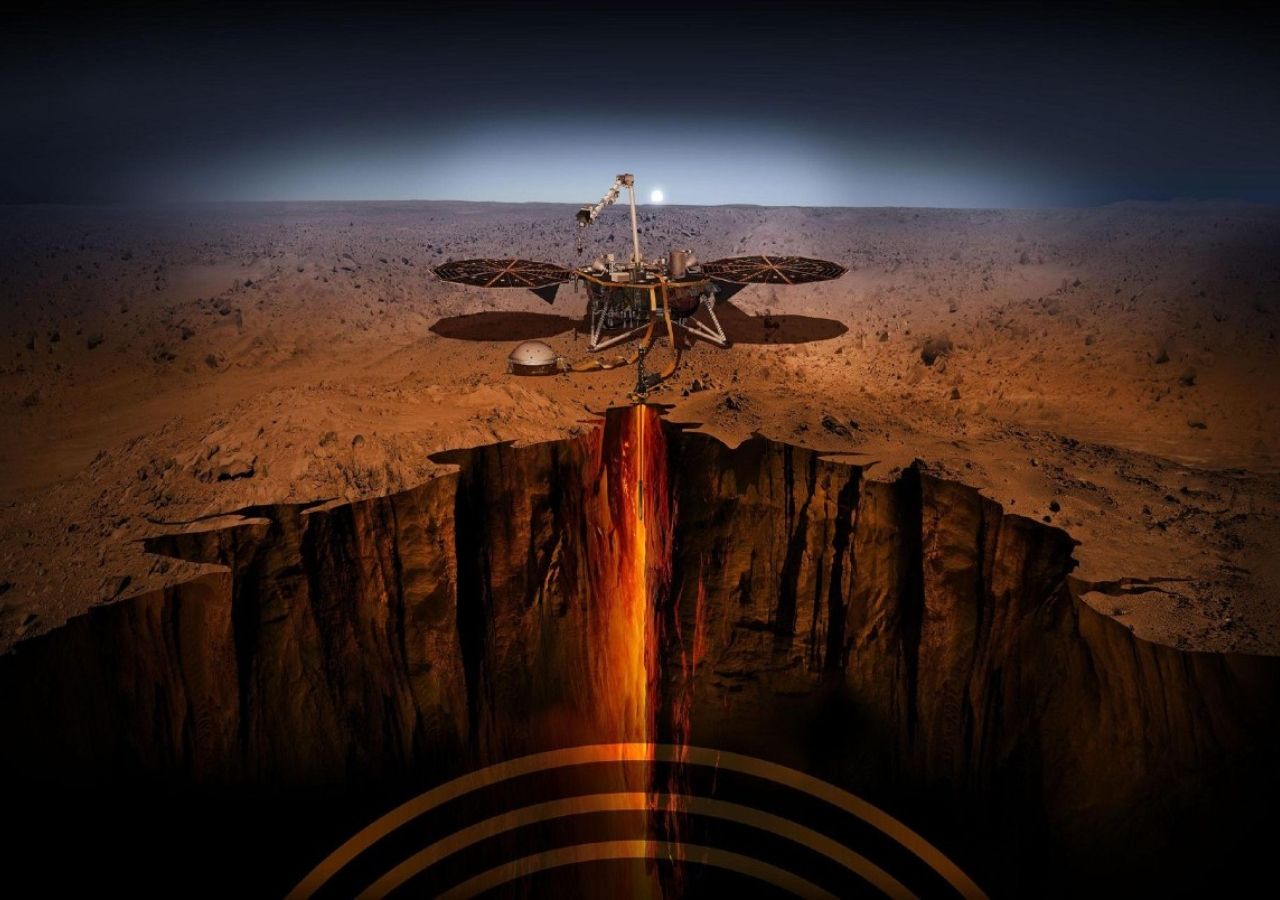
the The best evidence yet that Mars still has liquid waterIn addition to water trapped in its frozen poles and evidence of vapor in its atmosphere.
Discovery comes again Data analysis Mars Insight Lander from NASAwhich landed on Mars in 2018. The rover carried a seismometer that recorded four years of vibrations (earthquakes) deep within the Red Planet. Analysis of these tremors revealed (and exactly how the planet is moving). “Seismic signals” of liquid waterdetails BBC News.
While this discovery could have implications for the possibility of habitability on Mars, The ocean lies underground at a depth of between 11.5 km and 20 km below the surface.too far away to be useful for future human missions, considering that the deepest drilling operations on Earth are barely more than one kilometer deep.
What did the InSight mission find on Mars?
Scientific mission of vision The journey ended in December 2022, after the lander remained stationary while listening to the “pulse of Mars” during the journey. four Years.
During this period, the probe recorded more than 1,319 earthquakesBy measuring the speed at which seismic waves travel, scientists have discovered the materials they are most likely to travel through.

“These are actually The same techniques we use to search for water on Earth.“Or to explore for oil and gas,” explained Professor Michael Manga, of University of California At Berkeley, who participated in this research.
Analysis revealed Water deposits at depths of 10 km to 20 km in the Martian crust.
Water: The most important molecule in the evolution of the planet
“Understanding the water cycle on Mars is essential to understanding climate evolution.“The surface and the interior,” said lead author Dr. Fashan Wright of the Scripps Institution of Oceanography at the University of California, San Diego.
Much of our water is underground, and there's no reason why it shouldn't be that way on Mars as well.
Professor Manga added that Water is the “most important molecule in the evolution of the planet”He said the discovery answers the big question: “Where did all the water on Mars go?”
Studies on the surface of Mars (with its channels and waves) show that: In the past, there were rivers and lakes on this planet.But for 3 billion years it was a desert.
Some of this water was lost to space when Mars lost its atmosphere.But, according to Professor Manga, here on Earth, “a large portion of our water is underground and there is no reason why that shouldn’t be the case on Mars as well.”
Accessing groundwater on Mars would be extremely complicated (even for Elon Musk)
The probe vision It could only capture data directly from the Earth's crust beneath it.But researchers expect similar deposits to exist all over the planet.
If so, it is estimated that there is enough liquid water on the surface of Mars to form a layer on the surface more than 800 meters deep.
However, they point out that the location of this Martian groundwater is not good news for those with plans to colonize Mars.
“It is trapped at a depth of 10-20 km in the Earth's crust.“Drilling a 10-kilometre-deep hole on Mars – even for (Elon) Musk – would be difficult,” Professor Manga explains. BBC News.
Potentially habitable environment to support life on Mars
Mango says It does not rule out the hypothesis that underground deposits are a habitable environment..
“It’s true that it is like this on Earth: very deep mines harbor life, and the ocean floor harbors life. We have not found any evidence of life on Mars, but at least We have identified a place that, in principle, should be able to support life.“, He said.
News Reference:
Wright, V. and others. Liquid water in the middle crust of Mars. Proceedings of the National Academy of Sciences (PNAS)v. 121, No. 35, 2024.

“Coffee trailblazer. Social media ninja. Unapologetic web guru. Friendly music fan. Alcohol fanatic.”

